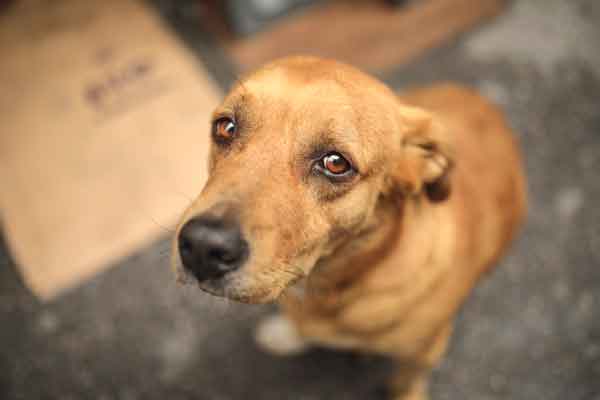Most animal lovers — a whopping 95% of pet owners according to a recent Harris Poll — consider their pets part of the family.
And they dread losing that pet, so much so that pet sympathy cards and even companion animal funeral homes have become big business.
But what happens when the pet outlives its human owners?
It’s a tough question to consider, but a vital one to ask if you want to ensure your pet continues to receive loving care when you are no longer here to provide it.
The two keys to providing for your pet's future are planning and communication. These keys factor into the five things to consider if should you die or otherwise become unable to care for your pet:
1. Choose the right person to be responsible for your pet after you pass away. Which of your friends and relatives is in the best position to do this? Your sister whose home already overflows with cats, dogs and children may mean well, but is her household the best fit? Maybe your shy kitty would prefer a quiet one-person household? Does your dog need more activity than a senior relative can provide? Consider all aspects before making a decision. You are, after all, asking someone to make a serious life change, and you want your pet to settle in as quickly and comfortably as possible.
2. Take steps now to ensure their chosen caregiver is ready for the responsibility. Start building or strengthening the bond between your pet and the person you've chosen. Have this person join you and Fido for walks or have a quiet cup of coffee at home with your timid Tabby. If the unthinkable should happen, your pet will be less traumatized if he or she already has a relationship with their new owner.
3. Make financial and legal arrangements for your pet's future care. When putting finances together, consider how much it would cost to feed and care for your pet. When your pet reaches the end of their life, what arrangements would you prefer? You can spell it all out in your will. You may also want to consider setting up a trust for your pet. Trusts providing for the care of pets after an owner’s death are legal and binding in all 50 states. Seek out legal advice to make sure the trust holds up and accurately and completely reflects your wishes. Trusts can be specifically tailored to your pet’s needs. Your pet’s favorite food? His exercise needs? The veterinarian she sees and how often she should see him or her? It can all go into the trust document.
4. Make sure information about your pet is in a visible location. Remember that, while legal processes take time, pets need immediate care and attention. Put together a list of the breeds, names, and ages of your pets, along with their vet's name and number, and put this information in an easily accessible location, like your refrigerator door. Make sure someone nearby — a relative in town or perhaps a neighbor — has a key to your home. This person may not be the permanent caregiver, but they will have the means to make sure your pet is cared for until permanent arrangements are made. The ASPCA recommends creating a dossier with pertinent information about your pet, which can help your pet find a new home faster, even if you don’t have a specific plan in place. Keep this information in a readily available location in your home and include information about your pet's habits, diet, medical conditions, veterinary records, and behavior with people, including children, and with other animals.
5. Create a limited durable power of attorney in case you're incapacitated. What if you're alive but incapacitated legally, mentally, or physically and unable to care for your pet? Legally binding documents can be created to ensure your pet is cared for in these circumstances. For example, a springing durable power of attorney can be used to designate someone to make decisions regarding the care of your pet should you suddenly become incapacitated. But remember: the powers granted with a durable power of attorney end with your death, so be sure you have permanent care arrangements covered in your will.
No pet owner wants to think about being separated from their pet, especially a permanent separation. But being a responsible and loving pet owner requires making difficult decisions to ensure your love for your pet is truly eternal.













Comment